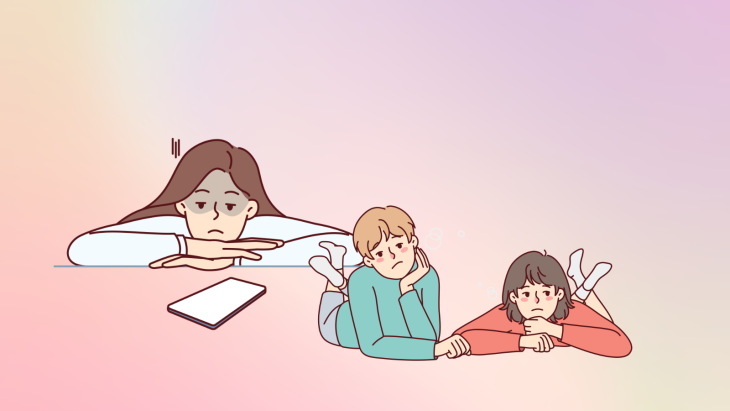Recent Posts
- Men masking mental health issues. Why is men's mental health declining in the US?
- I am hesitating on joining the armed forces! Are people in the armed forces more prone to mental health problems?
- Getting acquainted with the 7 types of anxiety disorders. What do I need to know about them?
- My husband needs to recover from alcohol dependence and mental health issues. How can I help him?
- Are there good and bad debts? And how does debt impact mental health?
Most Popular
What is boredom's role in childhood development and what misconceptions about boredom need to be changed?

What is our perception of boredom? Boredom, a natural human emotion, may have gone into our list of “bad emotions”. Many see feeling bored as harmful or undesirable, especially in a society where people are always in a rush. Boredom is linked with lack of productivity in a society where being productive all the time is praised and admired.
What is our response as parents when our child expresses their frustration about not having anything to do? We tend to suggest activities, give them something to do; a smartphone or tablet, maybe.
Are US children and teens bored and stressed?
A recent national survey of high school students says that almost 75% of high school students feel both bored “some of the time” and stressed “most of the time.” Half of the students say that schools have to teach them more on how to cope with stress.
In another poll of parents in the US, it seems that many parents struggle with providing their kids with things to do when kids get bored. Out of the 2000 parents surveyed, 40% are struggling to keep their children entertained, and this is a source of stress to parents.
In a related survey, kids get bored in only an average of 33 minutes of activity and almost half of them get bored with their activities quickly.
What is boredom?
What does science have to say about boredom? Is it really the negative thing that it is painted to be?
When it comes to factors affecting mental health, not being able to tolerate boredom is considered to be a risk factor for developing mental health problems in adulthood and adolescence.
Studies of human emotions show that boredom is part of our natural human emotions. Just like happiness, excitement, pain, anger, boredom is sort of our body’s messenger.
- It tells us information about ourselves, our environment, and relationships.
- It might tell us that we need change, or that the activity we are doing is not stimulating enough.
- It may tell us that we need to do something else.
- It can be a signal for our desire to be more independent.
And just like any other emotions, feeling boredom is not bad or good in and of itself. It is our response/reaction to boredom that will create pleasant or unpleasant effects to our wellbeing!
Benefits of responding to boredom
When children are allowed to be bored, they are given space to explore.
- They have a chance to respond to their frustrations.
- When they dislike being bored, they have a learning moment to regulate their feelings.
- They can use the time in their hands to become creative and learn new things.
When is boredom harmful?
Allowing space for boredom is healthy for the above mentioned reasons. However, boredom should also not be too stressful and difficult for the child to manage, as it can lead them to activities that might harm them.
Parents have to monitor that boredom should not be chronic, leading to increased stress and anxiety. The bottom line is finding the right balance of giving the child space for creativity and innovation while providing guidance.
Tips for parents
- Be proactive. Together parents and children can create a list of things the child enjoys doing and things they may want to try. And have the list ready for the child to choose from when they get bored. They can then practice their autonomy and decision-making.
- Encourage independent play. Realistically, there is a lot of time for free play in 1 day no matter how much planning parents do for children’s activities. Check how much time your child can usually engage in independent play and help them create a schedule with these independent play sessions scattered all throughout the day.
When we see boredom not in a negative light, its power to make us feel frustrated and like a failure also decreases. Let us be proactive by planning alternative activities ahead of time and be realistic that children have the ability to entertain themselves and become creative on their own.
Register and create your job profile and get matched to an amazing career opportunity in the US medical and mental health field!








Comments